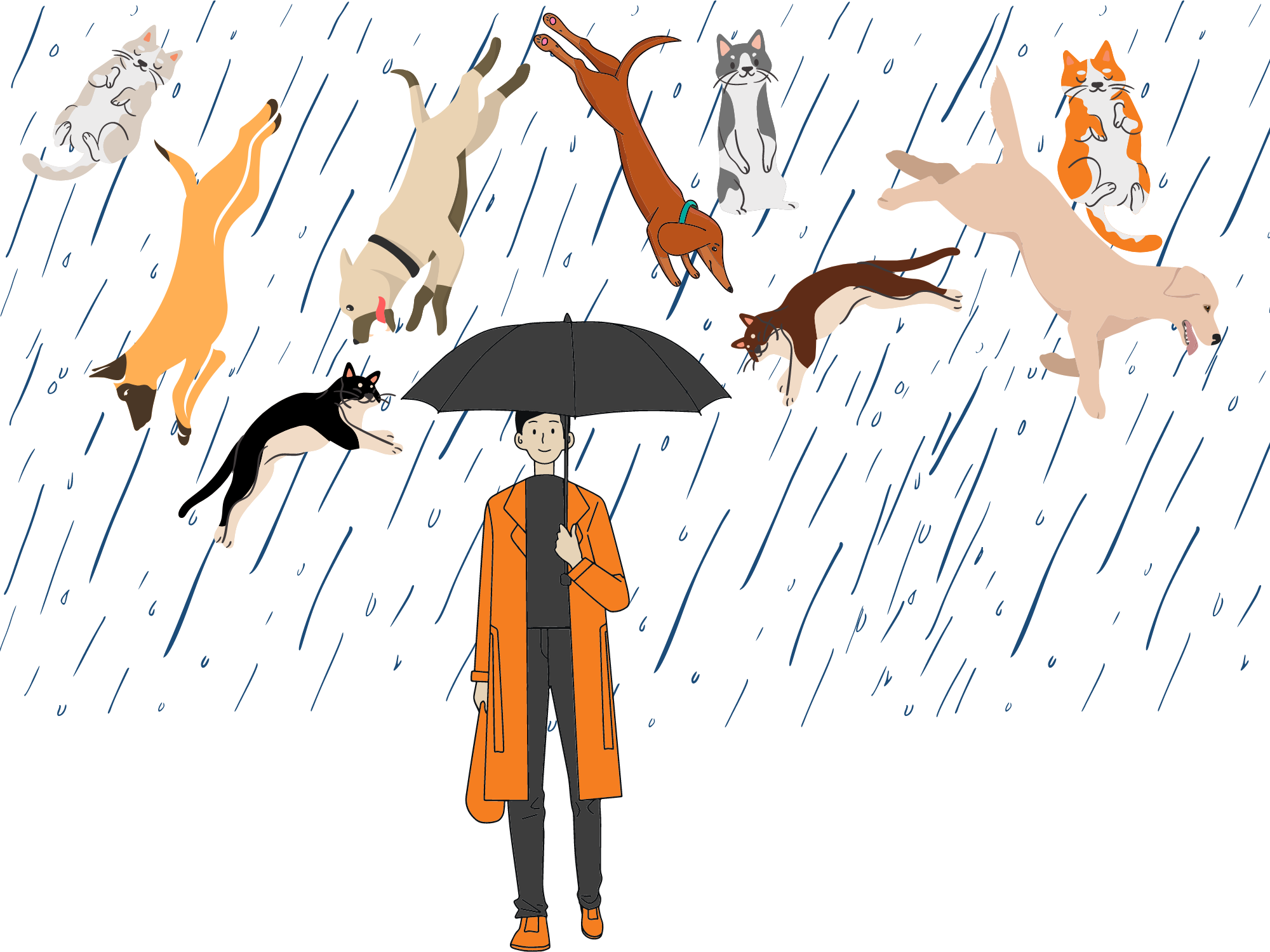Figurative language from around the world

If you live in the United States, you’ve probably heard the phrases a dime a dozen, it’s raining cats and dogs, and ignorance is bliss. But every country has its own set of figurative language and this blog will explore some of the more common idioms in various countries.
An idiom is a group of words whose meanings cannot be determined from the literal meanings of the words it is made of; i.e., using up in the air for “undecided.” They are categorized as figurative language. The word itself comes from the late 16th-century French word idiome or late Latin from Greek idiōma “private property, peculiar phraseology.”
One of the oldest known idioms is “an eye for an eye, a tooth for a tooth,” which comes from the code of Hammurabi in 1780 BC.
• A dime a dozen – this phrase began around 1800 following the first minted dime in 1796. At that time, many goods such as eggs or apples were advertised to cost a dime a dozen in the US. The phrase began as a way to promote good value for money. This then evolved into an idiom that means something nearly worthless as it is easily available.
• It’s raining cats and dogs – this idiom is said to have originated in England during the 17th century. City streets were then filthy and heavy rain would occasionally carry along dead animals. Cats and dogs also have ancient associations with bad weather.

• Ignorance is bliss – this phrase comes from Thomas Gray’s 1768 poem “Ode on a Distant Prospect of Eton College.” The quote states: “Where ignorance is bliss, ’tis folly to be wise” — meaning, you’re better off not knowing.
Some idioms used by English speakers actually originated in China.
• 一石二鸟 translates to two birds one stone. English speakers added the word “kill” to the beginning because the phrase felt incomplete.
• 老狗玩不出新把戏 translates to old dogs can’t play new tricks. This phrase pretty closely mirrors the English idiom.
Here is a look at other popular idioms in other countries and their meanings.
• Arabic – التكرار يعلّم الحمار or At-Tikraar yu’allem al- Himaar, which means “practice makes perfect.”
• French – Coûter les yeux de la tête or to cost the eyes of the head, which translates to “cost an arm and a leg.”
• German – Um den heißen Brei herumreden or talk around the hot porridge. This translates to the English idiom “beat around the bush.”
• Italian – Ogni morte di papa or every death of a pope. This translates to the English idiom, “once in a blue moon.”
• Japanese – 手のひらを返す – te no hira wo kaesu meaning to flip over one’s hand or the English idiom “to turn a cold shoulder.”
• Polish – Nie mój cyrk, nie moje małpy or not my circus, not my monkeys. This idiom means “Not my problem,” in English.
• Spanish – Abrir la caja de los truenos or opening the box of thunder, which is equivalent to “opening a can of worms.”

• Swedish – Skägget i brevlådan or the beard in the mailbox, which translates in English to “to be caught with your pants down.”
And while idioms can be more challenging to translate, they are essential to individualistic expression. They offer cultural understandings of societal standards, principles, and beliefs and allow us insight into the thoughts, emotions, and views of the speaker’s background.
The best way to translate an idiom is to find an equivalent idiom in the target language.







